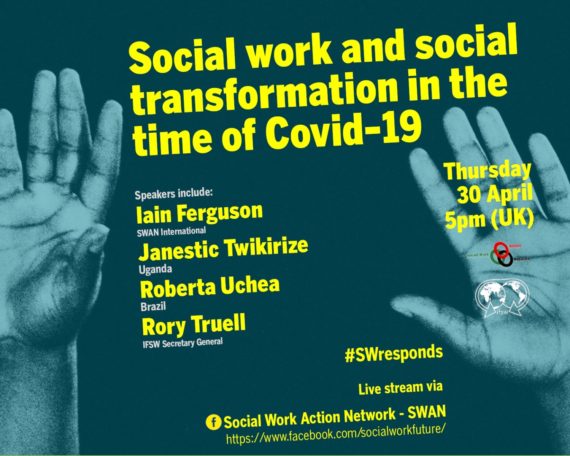Kia ora and comradely greetings from Aotearoa New Zealand!
This message is in response to a request by Luis Arevalo to offer a commentary on the state of social work in Aotearoa New Zealand. First of all, good wishes on your 2016 conference. Many social workers in New Zealand follow the work of SWAN with great interest, you are a constant source of inspiration for our own efforts to keep progressive social work alive.
There are many aspects of social work in Aotearoa that would be recognisable to our United Kingdom social work colleagues, and others that are unique to the history of this former British colony.
Aotearoa has a landmass that is larger than the UK, and a population that is smaller than Scotland. Most of the population is concentrated in a few cities in the North and South Islands with a third living in Auckland City (currently subject to a massive housing bubble, unaffordable rent and house prices, and a rise in homelessness that is reaching crisis proportions).
New Zealand is well known for its vast, sparsely populated and very beautiful rural hinterland that is home to a thriving tourist trade. Our rural communities are also home to a high-intensity, unsustainable, dairy farming industry (the engine of the New Zealand economy); and to many hollowed out, impoverished and forgotten rural towns and villages.
The contemporary demographics of our population are complex and dynamic. In the last 87 years the population of New Zealand has tripled, and it continues to be a major destination for new migrants with almost a quarter of all residents having been born overseas. Our history is steeped in colonisation and its continuing impact on Māori, the indigenous people of Aotearoa. Māori form 15% of the population but are grossly overrepresented in many negative social indicators: over 50% of the prison population, and over 50% of the child in care population are of Māori descent. Māori have higher mortality rates, and Māori suicide rates are almost twice as high as non-Maori.
Since the 1980s successive neoliberal governments (of the left and right) have deprecated state welfare. Overall rates of child poverty now stand at 29% and we have an infant mortality rate higher than the OECD average. The present neoliberal, National Party government (led by John Key, a former foreign exchange trader) is currently in its third term of office. In previous terms they introduced a privatised Serco run prison, set up charter schools and a national school curriculum, and transformed our welfare state into a workfare state. In their current term of office they have turned their attention to social services and child protection.
Last year the Productivity Commission published a report called “More Effective Social Services” that is founded on a “social investment approach” attempting to do “more with less”, targeting services on specific user groups, and introducing alternative funding models including “social bonds” (enabling low risk private sector investment in social services).
Just last year the government also announced the establishment of an “expert panel” to review Child Youth and Family services (New Zealand’s central government run child protection services). The so-called “expert panel” included not a single social work voice. The “expert panel” has now reported but the practical implications of their proposals are, as yet, unclear. They are, however, likely to have profound implications for the structure of child protection services, the registration of social workers (not yet mandatory), the surveillance of families at risk, the role of the NGO and for-profit sectors, and the future of social work education.
Another very notable development, and one worth keeping your eye on from the UK, has been the government’s proposals to introduce a predictive risk modelling tool using data held on service users by all government agencies to predict the likelihood that families will maltreat their children. This is a deeply troubling development, reminiscent of the idea of predicting “future crime” explored in the movie “Minority report”. Except, this time it’s for real. Several social work academics from New Zealand and Australia have developed critiques of the tool that are well work reading (see references in the Re-Imagining Social Work blog cited below).
On a more positive note, partly in response to these recent assaults on social work, there have been several progressive developments.

